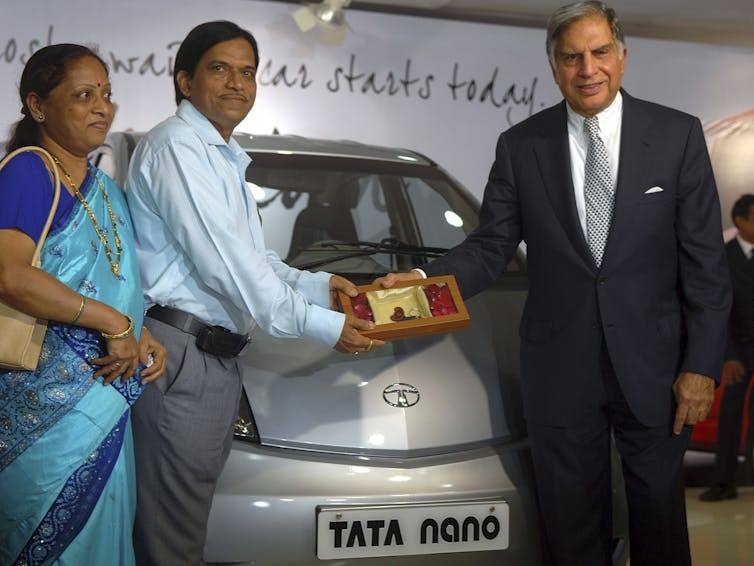An Acumen For Profit And Unconditional Compassion For People
Ratan Tata was a kind businessman who prioritised citizens, workers, and profit.
Cars, steel, hotels, tourism, and tea were among the interests of the multinational industrial titan Ratan Tata, who passed away at the age of 86. But because of his company’s dedication to humanitarian concerns, he was also praised as a visionary whose work extended well beyond the corporate sector.
As the leader of the Tata Group, an Indian conglomerate established more than 150 years ago, Tata became intricately entwined with the social and corporate development of India. Additionally, he played a key role in growing Tata’s worldwide footprint.
Purchasing the British tea manufacturer Tetley for £271 million in 2000 was one of his most noteworthy accomplishments, establishing Tata as one of the biggest tea corporations globally.
It was a daring move to turn the Tata group from a dominant force in India into a major one on the world stage. The 2008 purchase of Jaguar Land Rover was no exception.
Tata saw potential in the British brand, even though the automobile firm was having financial difficulties at the time. His risk paid off, as he oversaw large investments in design and technology. New models became well-known throughout the world, and Tata Motors rose to prominence in the automotive industry.
The 2007 US$12 billion (£9.2 billion) acquisition of Corus Steel, one of the biggest takeovers in Indian business history, was yet another pivotal point in Ratan Tata’s leadership.
Notwithstanding the difficulties the acquisition brought, such as shifting steel prices and recessions, it demonstrated Ratan Tata’s strategic goal of growing the company’s worldwide presence and his capacity to see beyond immediate profits and concentrate on the group’s long-term success.
Naturally, not all of his schemes were successful. In 2008, he had a significant role in the development of the Tata Nano, a car that was intended to be a more economical and secure substitute for two-wheeled vehicles.
It was marketed as the “cheapest car in the world” and cost slightly more than US$2,000. However, the Nano was discontinued in 2019 and most likely deserved better promotion and less hoopla. Nevertheless, it continues to stand for the company’s inventiveness and Ratan Tata’s resolve to make Indians’ daily lives better. This goal was also evident in the moral business conduct that ensures a large portion of the Tata group’s earnings go towards funding charitable endeavours in the fields of science, medicine, and education.

The Tata Institute of Social Sciences is one of the Tata research centres located in India. Additionally, the Tata Trusts have made contributions to institutions such as the London School of Economics and Harvard Business School.
He also demonstrated his commitment to philanthropy during times of distress, especially following the 2008 Mumbai attacks that targeted the Tata Group-owned Taj Mahal Palace Hotel. Later, Ratan Tata made sure that all impacted staff members and visitors received financial support and medical attention.
Additionally, Tata Steel declared that it will continue to provide medical benefits and income to the families of Indian workers who perished from COVID-19 until the worker’s 60th birthday.
Ratan Tata’s reputation as an industrialist who prioritised the welfare of people at the centre of his business was further cemented by his humanitarian response to crises, aiding communities in need and offering assistance after natural disasters.
Ratan Tata’s strong feeling of duty to better the lives of common people solidifies his reputation as a “people’s industrialist.” He once remarked, “I want to be remembered as someone who made a difference—neither more nor less.”
He will be remembered as something greater by many Indians. His inclusive business practices and generosity have had a long-lasting and beneficial effect on India. His reputation as a man who worked not only for financial gain but also for the advancement of society at large has been solidified by his moral leadership, long-term outlook, and profound empathy for others.




